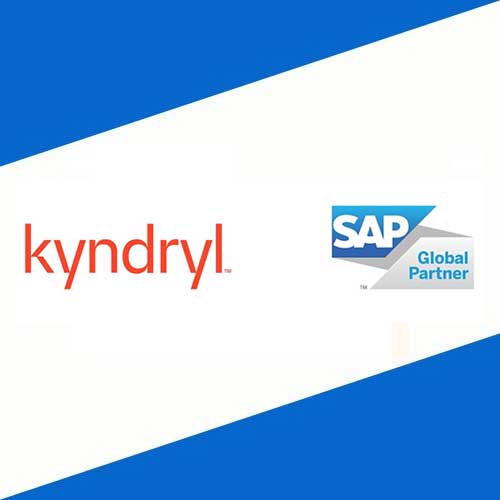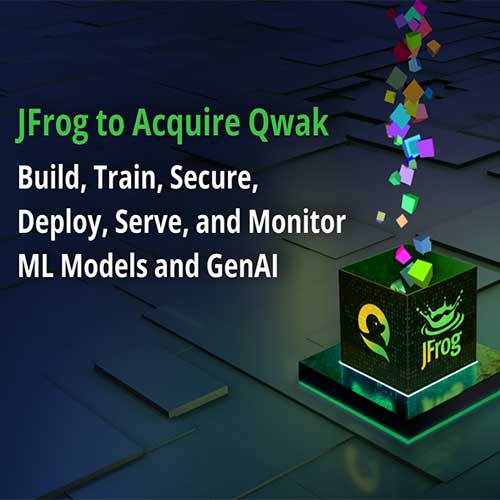
Technology has the power to bring innovation in a number of ways. Technology can enable collaboration between people from different parts of the world. This can lead to the development of new ideas and solutions.
Startups are often at the forefront of innovation, as they are not constrained by the same legacy systems and processes that larger companies are. This allows them to be more agile and responsive to change, and to quickly adopt new technologies. There are several use cases of how startups have brought new technologies to market. This is because startups are typically founded by entrepreneurs who are passionate about solving problems and creating new things. Large companies, on the other hand, are often more focused on efficiency and profitability.
Technology is constantly evolving and new technologies are being developed all the time. This means that there is always the potential for new innovations to be developed. As technology continues to evolve, it is likely that we will see even more innovation and eventually more start-ups in the years to come.
Additionally, startups reduce their reliance on manpower by leveraging technology advancements. They embrace automation, artificial intelligence, and machine learning to streamline processes, optimize operations, and reduce labour costs. By automating repetitive tasks and utilizing intelligent algorithms, startups can achieve higher levels of efficiency and productivity while minimizing the resources required. This approach not only drives down costs but also enables startups to allocate their manpower strategically, focusing on tasks that require human expertise and creativity.
Furthermore, startups recognize the value of data and its potential to drive innovation while keeping costs low. By collecting and analyzing data, startups gain valuable insights into customer behaviour, market trends, and product performance. This data-driven approach allows startups to make informed decisions, tailor their offerings to customer preferences, and identify opportunities for cost optimization.
By leveraging data effectively, startups can refine their products and services, target their marketing efforts more accurately, and allocate resources efficiently, ultimately reducing costs and increasing their competitiveness in the market.
In today's economy, new businesses can disrupt the status quo while also developing the next wave of important technologies. With these new businesses can bring fresh approaches and ideas, even established corporations are looking closer at this ‘startup culture’. There is a startup in almost every area – right from affordable housing and step-by-step guides for getting a green card, to an electric foldable bicycle.
Talking about the state of startups in India, reportedly 57K+ startups were launched till 2022, with $131 Bn total capital raised by Indian startups between 2014 and H1 2022. The combined valuation of Indian startups was $450 Bn+, while there will be a total of 250 unicorns in India by 2025.
Startups challenging established norms and traditional business models
 Nikhil Sikri
Nikhil Sikri
Co-founder & CEO - Zolo
Year of inception: 2015
Zolostays is a co-living platform based out of Bengaluru, founded by Dr Nikhil Sikri, Akhil Sikri, and Sneha Choudhry. The platform provides fully-managed, long-term affordable stay options which alter the conventional paying guest (PG) accommodation and apartment rental facilities. Zolo tries to make stays as hassle-free as possible. The company is known for its cutting-edge technology solutions that make co-living more convenient and accessible for its customers. Through its tech-enabled platform, customers can easily search, book, and move into fully furnished, managed homes. The company also offers a range of amenities and services, including housekeeping, maintenance, and community events, to ensure a hassle-free living experience.
Zolostays places a strong emphasis on innovation and putting the customer first. By focusing on customer satisfaction and utilizing advanced technology solutions, the company is determined to continue transforming the co-living experience in India.
TECH STARTUPS SHAKING UP THE STATUS QUO
“Startups often challenge established norms and traditional business models by introducing innovative approaches. Zolostays, for example, disrupted the traditional rental and real estate market by offering co-living spaces that cater to the needs and preferences of the younger generation.
Startups also leverage technology to streamline processes, enhance customer experiences, and optimize operations. Zolostays utilizes advanced technology platforms to provide a seamless user experience, from property search and booking to payments and maintenance requests.
Startups often prioritize customer needs and preferences, providing tailored solutions that address pain points in their respective industries. Zolostays, for instance, recognized the demand for affordable and hassle-free housing among students and young professionals and then built its business model around this target market. By catering to specific customer segments and their unique requirements, startups can disrupt traditional industries and gain a competitive edge.
Startups often employ agile methodologies and lean approaches to product development and marketing. They prioritize rapid iterations and feedback loops, enabling them to bring newer innovations to the market quickly and with reduced costs. By leveraging data analytics and user insights, startups can iterate and refine their offerings, ensuring they meet the evolving needs of their target audience.”
Startups reshaping industries through collaborative economies
 S Anand
S Anand
the Founder & Chief Executive Officer -
PaySprint and SprintVerify
Year of inception: 2020
PaySprint is a NexGen B2B FinTech Company, solidifying an API infrastructure in the Banking, Financial & Verification ecosystems. A leading API provider in India with 1100+ B2B Partners onboard, its premier product suite comprises SprintOPN - a comprehensive stack of Banking, Financial & Payments APIs, SprintVerify - a No-Code Document Verification solution, and SprintNXT - a NexGen Business Banking Platform.
PaySprint has broken new ground in Document Verification with SprintVerify’s “Click2Verify” platform. Integrated into it are 70+ APIs that can verify every major Indian document that both individuals & entities hold.
TECH STARTUPS BRINGING NEWER INNOVATIONS
Established and nascent tech startups are shaking up their respective industries by introducing disruptive innovations and challenging traditional norms. They leverage cutting-edge technologies like artificial intelligence, blockchain, and virtual reality to revolutionise existing practices. In their constant pursuit of revolutionary breakthroughs, they question traditional business models and develop customer-centric approaches that prioritise convenience, personalization, and cost-effectiveness.
By eliminating intermediaries and adopting a direct-to-consumer approach, they offer competitive pricing, better quality control, and improved user experiences. Furthermore, startups identify niche, untapped markets and underserved customer segments within established industries and develop tailored solutions to meet their specific needs, gaining a competitive edge. Always on their toes, startups are reshaping industries through collaborative economies, allowing individuals to monetize assets and provide services directly to consumers.
Driven by an unmatched passion and resolve, startups embrace lean and agile methodologies, emphasising iterative development, continuous feedback, and rapid experimentation. By building minimum viable products and testing them early with real users, startups save time and resources in developing fully-featured products. Additionally, startups leverage cloud computing services, which provide flexible and scalable infrastructure without hefty upfront investments.
Crowdfunding platforms have become popular sources of funding for startups, enabling them to validate their ideas, build communities, and secure capital without solely relying on traditional funding sources. Lastly, startups form collaborative partnerships with established companies, universities, and research institutions, leveraging shared resources, expertise, and infrastructure to accelerate innovation while minimising their expenses.”
Startups driving transformation and reshaping industries
 Kushang
Kushang
Co-founder & CEO of SupplyNote
Year of inception: 2019
SupplyNote, a product developed by AdCount Technologies Pvt. Ltd, was conceived with a clear vision to solve significant backend challenges facing the food industry, particularly in supply chain management. It is the first-of-its-kind Point-of-Purchase solution that helps F&B businesses digitize their data, optimize and automate their backend operations which eventually leads to saving costs and improving profits. SupplyNote also provides a Cloud-based web and mobile-enabled suite connecting restaurant outlets, service providers and suppliers.
TECH STARTUPS SHAKING UP THE STATUS QUO
“Tech startups are disrupting traditional industries by introducing innovative solutions and challenging established norms. With their agility and focus on leveraging technology, they bring fresh perspectives, efficient processes, and customer-centric approaches. These startups are driving transformation, fostering competition, and reshaping industries across the board.
For instance, in the F&B industry characterized by manual, time-consuming backend processes, SupplyNote brings a breath of fresh technological innovation. Traditional methods of data recording and management typically rely on pen-and-paper systems, leading to inefficiencies and inaccuracies. However, SupplyNote revolutionizes these processes with real-time data recording and processing. The platform's technology seamlessly integrates with a business's point-of-sale system, calculating resource utilization based on each product sold. This not only automatically updates inventory logs according to consumption but also alerts the staff about items nearing depletion. Moreover, SupplyNote simplifies supplier and vendor management by facilitating the creation of Purchase Orders and Sales Orders within the platform.
Startups are leveraging various strategies to bring innovations to market at a lower cost. They utilize agile development methodologies, lean approaches, and cloud-based infrastructure to minimize overhead expenses. For instance, SupplyNote's ability to integrate with point-of-sale systems, track resource utilization, and provide alerts for inventory depletion eliminates the need for manual tracking and reduces the risk of stockouts or overstocking, both of which can be costly. This digital transformation, along with the insight-rich data analytics, enables F&B businesses to optimize their operations and drive profitability in a cost-effective manner.”
Unlike larger companies, startups keep users at the core of decision-making process
 Manas Ranjan Hota
Manas Ranjan Hota
Co-founder & COO - DrinkPrime
Year of inception: 2016
DrinkPrime embarked on its journey in to solve a problem: How can everyone has access to clean, safe and healthy drinking water? In stark contrast to conventional water purifier brands that sell expensive devices and require additional annual maintenance costs (AMC), DrinkPrime is an essential service that has adopted a subscription model focused on increasing safe drinking water access in India. By disrupting the 30-year-old water purifier industry, DrinkPrime provides IoT-enabled customised water purifiers on rent.
TECH STARTUPS BRINGING NEWER INNOVATIONS
“In the 30-year-old hardware-driven water purifier industry, DrinkPrime is a game-changer. We believe in the use of tech, primarily IoT, to not only deliver safe drinking water but also to make our subscribers' lives easier. This is also one of the reasons to develop, maintain and optimize our user-friendly DrinkPrime mobile app - it brings convenience, transparency, and peace of mind to our subscribers. It sets us apart in the industry by bridging the gap between hardware and technology, ensuring that our customers have seamless access to the different facets of their drinking water experience.
Core customer focus is one of the greatest advantages that startups build and have over traditional brands. When we started our journey, our primary goal was to solve a real problem in society and create a product that truly met the needs of our users.
One example of this user-centric approach is our adoption of the subscription model. Many companies shy away from this model due to its potentially lower profit margins. However, from a user standpoint, a subscription model offers greater convenience and empowerment. It puts the power back into the hands of the user, allowing them to have more control and flexibility in their experience.
One of the remarkable advantages that startups like ours possess is the ability to operate without the burden of traditional overheads associated with distributors and dealers. By adopting a direct-to-consumer (D2C) model, we can streamline the supply chains and minimize the number of intermediaries involved. This, in turn, leads to a significant reduction in costs for the end user.”
With a focus on R&D, start ups address the specific needs of customers
 Anmol Bohre
Anmol Bohre
Co-Founder & MD, Enigma
Year of inception: 2019
One of India’s fastest-growing and most disruptive auto manufacturers in the Electric two-wheeler segment, accessibility and sustainability are Enigma’s core defining attributes. The company has engineered Enigma e-scooters to match Indian roads, weather, and traffic patterns perfectly thereby maximizing trust, reliability and performance to capture the imagination of Indian buyers and boost overall EV adoption.
TECH STARTUPS SHAKING UP THE STATUS QUO
“Startups, like ours, have focused on research and development to identify and address the specific needs of customers. By introducing features such as 30 MM motor magnets for better torque, front disc brakes for improved safety, aluminium alloy wheels for an enhanced look, and high-grade plastic parts, we have differentiated our products and brought innovative solutions to the electric two-wheeler market.
Recognizing the need for high-speed RTO-approved electric two-wheelers, we strategically shifted our focus from low speeds to high speeds. By aligning our offerings with the changing market demands and regulations, we have positioned our company to cater to the growing segment of customers seeking high-speed electric vehicles.
Our company is integrating lithium batteries with CAN-based active balancing smart Battery Management Systems (BMS). This technology allows for real-time monitoring and control of various parameters such as battery charging, discharging, temperature, motor temperature, and more. By leveraging IoT capabilities and developing an all-in-one app, we are enabling customers to make informed decisions based on comprehensive vehicle data.
We have spent considerable time researching the market and understanding customer requirements. By focusing on the right product development, incorporating key features, and optimizing costs, we have been able to bring innovative electric two-wheelers to the market while minimizing expenses.
Our company has leveraged innovative features, market focus, advanced technologies, and strategic partnerships to shake up the electric two-wheeler industry. By adopting efficient research and development practices, lean operations, and leveraging existing technologies, startups can bring newer innovations to market with reduced costs, allowing for competitive offerings and growth in the rapidly evolving electric mobility space.”
Startups leveraging technology to operate at scale
 Saurabh Vohara
Saurabh Vohara
Founder and CEO - ALYF
Year of inception: 2022
ALYF is a proptech company in India that is revolutionising holiday home ownership through its unique co-ownership model and breakthrough technology. The founders of ALYF saw a huge gap in the demand and supply of holiday homes and also found a problem in the system that highlighted the accessibility of these homes. These kinds of property investments were limited to the HNIs and the hassle of managing them was a big challenge. ALYF was built to solve all these challenges and make holiday home ownership seamless for all.
TECH STARTUPS BRINGING NEWER INNOVATIONS
“Tech startups are disrupting industries by prioritizing convenience, streamlining information to transactions, enabling quick transactions, and leveraging data. They bring convenience to people's doorsteps through on-demand services and mobile apps. By digitising processes and using AI, startups simplify transactions and save time. They also enable quick transactions with instant payments and mobile banking solutions. Startups harness data to personalise experiences and improve services. Overall, they are revolutionising industries, enhancing efficiency, and delivering superior customer experiences.
Startups are changing the way newer innovations are brought to market by implementing strategies that drive down costs while maintaining efficiency and competitiveness. These strategies include the removal of intermediaries, operating at scale through technology, reducing dependency on manpower, and harnessing the power of data.
One key approach startups employ is the elimination of intermediaries in their value chains. By establishing direct connections with customers, startups bypass traditional distribution channels and reduce costs associated with middlemen. This direct-to-customer approach allows startups to offer competitive pricing while maintaining higher profit margins, giving them a significant advantage in the market.
Moreover, startups leverage technology to operate at scale without incurring substantial costs. Through the utilization of digital platforms, automation, and cloud computing, startups can handle increased demand efficiently. This scalability enables startups to reach a larger customer base and expand their operations rapidly, all while minimizing the need for extensive investments in physical infrastructure or additional manpower.”
Startups in the emerging tech space addressing existing gaps and inefficiencies
 Pradeep KP
Pradeep KP
Co-Founder & CEO, Dhiway Networks
Year of inception: 2019
Dhiway is a Bengaluru-based an authentic data platform start-up. It is focused on building products and services which empower organisations with a continuous assurance of data records using a combination of cryptography, verifiable credentials, and platform called CORD that uses blockchain technology to build Scalability, Immutability and Global verifiability among various other attributes.
TECH STARTUPS SHAKING UP THE STATUS QUO
“Startups in the emerging and emergent technology space focus on innovative approaches which address existing gaps and inefficiencies. With a growing understanding that “data is the new oil”, ensuring the smooth flow of data across various platforms, auditable control points and ecosystems has become a necessity to aid economic growth. While data generation is now possible through a range of systems, including edge devices (IoTs and sensors), the data processing pipeline involved in data transformation continues to be high cost propositions, given that the data quality is often uncertain.
Dhiway’s approach to breaking this status quo has been around the design and release of products which allow data streams to be authenticated with provenance. Tracking changes and modifications to the data payload through the entire data processing lifecycle is possible through unique, persistent resource identifiers. These persistent identifiers can be used to transform both public and private data registries. This approach also enables better data governance by establishing delegation hierarchies and immutable data history - which is one of the attributes of the blockchain technology. Data exchanges between ecosystems happen at scale, and Dhiway has designed the products to be available for population scale deployments. We believe that better approaches to engaging with data, to enhance Discoverability, Enquiry, Engagement and Transaction will be the bedrock upon which new applications and services can be designed modularly to create large numbers of digital trust ecosystems.
The founding team at Dhiway have extensive experience in open-source software development. This approach inverts the traditional model of developing everything in-house expensively to one where key building blocks are designed under liberal licensing terms and transparently in code repositories where many developers can participate.”
Tech startups revolutionizing traditional sectors and reshaping the way they operate
 Sarvagya Mishra
Sarvagya Mishra
Co-founder & Director - SuperBot
Year of inception: 2018
PinnacleWorks, a technology-focused company introduced SuperBot, a flagship product to the Indian market in, when the concept of an AI-powered conversational agent was still emerging. SuperBot specializes in holding intelligent conversations with humans over telephony channels, aiming to bridge the communication gap faced by industries and cater to their diverse calling needs.
With the ability to manage over 1,000,000 concurrent calls per day, SuperBot not only significantly reduces query resolution by enhancing efficiency but also empowers businesses to achieve substantial cost savings.
TECH STARTUPS BRINGING NEWER INNOVATIONS
“By leveraging cutting-edge technologies, tech startups are revolutionizing traditional sectors and reshaping the way we live, work, and engage with services. For instance, in the transportation and ride-sharing industry, startups are introducing new models that provide convenient and affordable mobility solutions, disrupting traditional taxi services. In the accommodation and hospitality sector, startups are leveraging digital platforms to connect travelers with unique lodging options, challenging the dominance of traditional hotel chains. Similarly, in the food delivery industry, startups are revolutionizing the way people order and receive food, offering on-demand services that cater to changing customer preferences. The agility and willingness of these startups to take risks, and focus on leveraging technology to solve problems have allowed them to challenge the status quo and reshape industries.
Startups bring newer innovations to market at a lesser cost compared to traditional companies through various strategies and approaches. Firstly, their agile operations allow them to make quick decisions and adapt to market needs efficiently. With fewer bureaucratic layers, startups can streamline processes and reduce inefficiencies, enabling faster product or service launches. Secondly, startups often follow a lean approach, focusing on developing minimum viable products (MVPs) to test the market and gather valuable feedback before investing heavily. Startups utilize cloud computing, software-as-a-service (SaaS) platforms, and other digital tools to optimize operations and reduce infrastructure expenses. Moreover, startups outsource non-core functions to external vendors or partners, leveraging their expertise while keeping costs under control.”
Startups bringing about transformative changes by challenging conventional models
 Puneet Sharma
Puneet Sharma
Founder - Zoop
Year of inception: 2016
Zoop is an IRCTC approved train food delivery partner. It has acquired certification from the esteemed Indian Railways Catering and Tourism Corporation (IRCTC) and FSSAI approval to its registered restaurants. It delivers quality and hygienic food in association with IRCTC at the passenger’s seat across over 150 train stations in India. Zoop’s goal is to deliver 1 lac meals daily at 250+ Railway Stations across India by 2024.
TECH STARTUPS SHAKING UP THE STATUS QUO
“Technology startups play a pivotal role in disrupting industries through their innovative approaches and cutting-edge solutions. By challenging conventional business models and addressing unmet needs, these startups bring about transformative changes. Through disruptive technologies, an agile mindset, customer-centric innovation, disintermediation, and collaborative economy models, tech startups continue to challenge the status quo and reshape industries. Their ability to identify and leverage opportunities for innovation contributes to the advancement of society and the economy at large.
Startups, despite facing resource constraints, have demonstrated remarkable ingenuity in bringing newer innovations to market with limited costs. Here are several strategies commonly employed by startups -
Open-Source Software and Cloud Computing: Open-source software provides access to existing code that can be modified without expensive licensing fees. By utilizing cloud computing services, startups can access scalable and cost-effective solutions for storage, hosting, and computing power without large upfront investments in physical infrastructure.
Outsourcing and Remote Work: By leveraging global talent pools and utilizing remote collaboration tools, startups can tap into expertise without the expenses associated with full-time hires or maintaining physical offices.
Crowdfunding and Pre-orders: By offering early access, exclusive perks, or discounted pre-orders, startups can secure funding while simultaneously validating market demand for their products or services. Crowdfunding not only reduces financial risks but also provides a revenue stream to support development and production.
Strategic Partnerships and Collaborations: Startups often establish partnerships with complementary companies or larger corporations to leverage shared resources, expertise, and distribution channels. Collaborating with established players provides startups with access to existing customer bases, mentorship, and economies of scale.”
Being nascent organizations, startups are more agile, flexible & adaptable
 Runam Mehta
Runam Mehta
CEO - HealthCube
Year of inception: 2019
HealthCube is a point-of-care technology-enabled diagnostics service provider. Dr. Ramanan Laxminarayan founded it with the vision of transforming healthcare delivery by making diagnosis simple and hassle-free. HealthCube has developed cutting-edge screening systems powered by AI that can be easily deployed anywhere in India for rapid screening. It has already touched over a million lives by completing more than 2.5 million tests.
Leading corporates have also collaborated with HealthCube for their CSR programs including Vodafone Idea Ltd., Honda Motorcycle and Scooter India, among others. The company executed a project to screen the Indo-Tibetian population for their vitals and basic biochemical parameters at the behest of His Holiness, The Dalai Lama.
TECH STARTUPS BRINGING NEWER INNOVATIONS
“The advantage with startups is that they are lean and innovation-oriented from the outset. They don’t have to carry a legacy forward and are driven by the purpose of finding a better solution to existing or emerging problems. Being nascent organizations, startups are usually flexible, adaptable, and lean enough to adjust their operations to changing scenarios. The rigidity and complex processes/hierarchies that exist in large tech enterprises are not there in startups, and they are able to take quick decisions, pivot and return to the drawing board with greater ease. All these qualities and flexibility of operations make startups frequently come up with disruptions in their respective domains.
This is made possible by the very nature of startup operations which are vastly different from established companies. Startups are more agile and their resources are usually channelled towards a specific innovation or disruptive service. Their innovative mindset, great grasp of advanced technologies, and the light, as well as agile structure, enable startups to optimize costs and become adept at achieving outcomes within limited budgets which are usually a fraction of what an enterprise would have. Moreover, startup founders and core teams tend to multi-task, collaborate with other brands, and outsource or automate processes to reduce operational costs. This again makes a major difference compared to large enterprises. This dynamism works well for startups in their bid to innovate and disrupt their markets.”
Startups employ experts who have a better understanding of the products
 Vaibhav Tambe
Vaibhav Tambe
Founder & CEO - TransBnk
Year of inception: 2022
TransBnk is a Technology-enabled Financial Services firm enabling Corporate, Commercial & Institutional clients to make agile, secure & robust Transactions with Embedded Finance & SaaS. The company's aim is to provide deep domain expertise to ensure seamless business transactions for domestic cash management and payments. It specializes in providing innovative digital money management services and solutions, such as escrows, trade finance, supply chain finance & custodial services in close collaboration with banks.
TECH STARTUPS SHAKING UP THE STATUS QUO
“Tech startups are playing an important role in shaking up the status quo by leveraging their agility and nimbleness to identify new opportunities, test new products and services quickly, and bring them to market faster than traditional companies. Some of the areas where tech startups are disrupting the status quo include customer service, product delivery, automation, analytics and machine learning, online payments, mobile application development, cloud computing, and digital marketing. Through these disruptive technologies, tech startups are creating efficient and more effective solutions that can help businesses streamline their processes, reduce costs, and better engage with customers.
Startups can bring newer innovations to market with a lesser cost by leveraging the economies of scale wherein the same innovation gets implemented for a large number of clients thereby reducing the cost of development and infra for each client significantly. Also, startups deploy several different cost-saving strategies such as utilizing agile development techniques to reduce the cost of engineering resources, taking advantage of cloud-based hosting to reduce overhead costs, utilizing managed services to outsource software development, and leveraging a range of pricing models for access to tools, resources, and networks. Additionally, many startups employ experts who have a better understanding of the products vis-à-vis an in-house development by any firm allowing them to deploy better processes. Finally, startups often look to collaborating with larger companies to gain access to their existing infrastructure and capabilities, reducing the cost of getting a product to market.”
By pioneering cost-effective approaches, startups are bringing newer innovations
 Hiranmay Mallick
Hiranmay Mallick
CEO and Co-Founder - Tummoc
Year of inception: 2019
Tummoc is India’s Patented Transit Tech Application with multimodal journey planning and ticketing. Tummoc was initially launched as Bykerr in by Hiranmay Mallick, Monalisha Thakur, and Narayan Mishra, and officially rebranded to Tummoc in July 2020. The company is building MaaS for India by providing a single application for all commute modes and needs. Tummoc helps track and find actionable & accurate intra-city travel information for the bus/metro/suburban rail. Users can purchase passes directly on the app currently only available in Bangalore, and soon will be launching online ticketing in other cities.
The application is available in 20 cities at the moment, has a user base of over two million, and continues to expand.
TECH STARTUPS BRINGING NEWER INNOVATIONS
“Tech startups are disrupting the status quo by leveraging advanced technology and fresh perspectives. Through their innovative solutions, startups challenge traditional practices, bring forth new business models, and introduce ground-breaking products and services. By embracing cutting-edge technologies like AI, data analytics, and automation, startups are redefining industry standards, driving competition, and pushing the boundaries of what is possible.
Startups are pioneering cost-effective approaches to bring newer innovations to the market. By leveraging agile methodologies, lean operations, and cloud-based infrastructure, startups can reduce overhead expenses and optimize resource allocation. Additionally, strategic partnerships, crowdfunding, and shared economy models enable startups to access funding and resources at lower costs. These innovative approaches allow startups to focus on their core innovations and deliver ground-breaking products and services while remaining cost-efficient.”
AI-driven forensics capabilities enable users to maintain security within the NFT ecosystem
 Vijay Pravin Maharajan
Vijay Pravin Maharajan
Founder & CEO, bitsCrunch
Year of inception: 2019
bitsCrunch is a leading global data analytics firm specializing in multi-chain insights for NFTs and digital assets. It is an AI-powered community-driven NFT data network, a sophisticated decentralized platform specializing in enriched NFT data. This innovative network is designed to bolster the NFT ecosystem by providing valuable insights and high-quality analytics and forensics data.
TECH STARTUPS SHAKING UP THE STATUS QUO
“At bitsCrunch, AI technology lies at the core of our operations. By harnessing the power of artificial intelligence, we have developed a sophisticated analytics platform that offers unparalleled insights into NFT collections, trends, and metrics. Our AI-driven forensics capabilities enable users to identify potential risks, detect fraudulent activities, and maintain the highest level of security within the NFT ecosystem.
Key Features that make us stand out -
Forensic Data: Gain peace of mind with detailed forensic data on NFTs, empowering you to identify potential risks and fraudulent activities while ensuring maximum security.
High-Quality NFT Analytics: Make informed investment decisions with our in-depth analytics. Leveraging AI technology, our network provides accurate price estimations for NFT tokens and delivers valuable insights to enhance your NFT portfolio.
Community-Driven Ecosystem: We believe in the power of collective intelligence. Join our network and contribute code or content to fuel continuous growth and refinement of our data and services, creating a dynamic and thriving ecosystem.
Addressing Key Issues: bitsCrunch recognizes and actively works to address key issues prevalent in the NFT space. Through our AI technology, we strive to combat counterfeiting, plagiarism, and other forms of intellectual property infringement. By analysing vast amounts of data and applying advanced algorithms, we provide robust solutions that contribute to the integrity and longevity of the NFT market.
For the past two years, bitsCrunch, has been working towards building core solutions that solve some of the major issues afflicting the industry. The company has launched its first B2C product UnleashNFTs, a premier NFT analytics platform that offers reliable insights into popular and emerging NFT collections, projects, and marketplaces.”
Startup is the outcome of an experiment
 Giridhar LV
Giridhar LV
Founder & CEO - Nuvepro Technologies
Year of inception: 2014
Nuvepro provides Hands-on labs/Virtual IT labs for any form of software training and assessments. This platform is used by organizations to provide these pre-configured sandboxes to their employees on technologies such as Cloud, Big Data, Kubernetes, Cyber security, and Web3. Software vendors use our platform to provide pre-configured sandboxes to their sales, and marketing teams to provide pre-configured sandboxes of their software tools to demonstrate and onboard customers, thereby enabling Product Led Growth.
TECH STARTUPS BRINGING NEWER INNOVATIONS
“Technical innovations are a never-ending line that keeps moving ahead along with time. Firstly, these innovations may be the solution to a problem or a requirement, and secondly the outcome of an experiment – a successful outcome.
Let’s consider the case of a technical innovation being the solution to a problem or a requirement. You have probably heard of companies such as Box or DropBox. The requirement was for organizations to find a better way to collaborate, access and protect documents that are crucial. There were established players like Microsoft, Adobe amongst others who weren’t solving this problem and that’s where Box and DropBox stepped in and solved it. This led to the established players following suit.
The second scenario is where the startup is the outcome of an experiment. OpenAI or their better-known solution ChatGPT falls into this bucket. A Large Learning Model or LLM has been in development for many years now and it has reached a maturity that is beginning to see adoption. All the use cases weren’t clear when these models were being created, but now, we see that they can be applied to Legal, IT, Medical, Education, Training, Coding and many more. We see companies like Microsoft adopting this into their solutions like Office, Edge etc.
Both innovation types will eventually lead to large organizations adopting these innovations, but startups with almost no existing baggage are the ones that end up being successful.”
See What’s Next in Tech With the Fast Forward Newsletter
Tweets From @varindiamag
Nothing to see here - yet
When they Tweet, their Tweets will show up here.






























